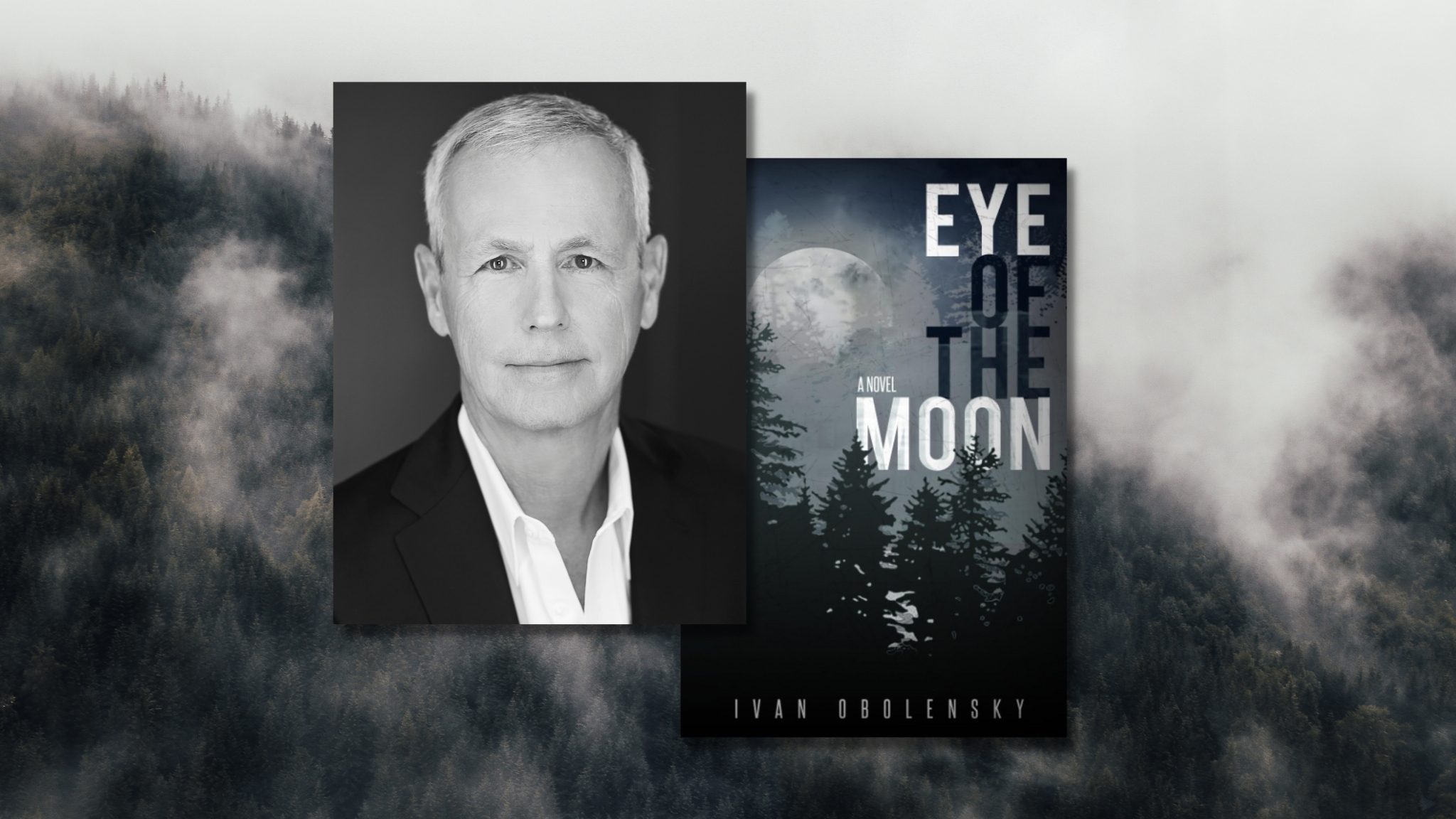In Ivan Obolensky’s award-winning American Gothic novel, Eye of the Moon, two estranged friends are reunited only to discover a gruesome mystery.
Set in 1977 New York, Percy and Johnny reunite at the haunting estate of Rhinebeck where Johnny’s aunt Alice died reading an Egyptian Book of the Dead. Stumbling upon her letters and journals, they discover that her story is not what they’ve been told — not at all. Everyone has a secret, and nothing is what it seems.
We asked the author about his inspirations for the book, his knowledge of the occult, his experiences with friendships like those of Percy and Johnny, and more.
Q: Which of the characters were drawn from people in your own life? Did those people recognize themselves, and if so, what was their reaction?
A: Most of them are amalgams of people I know or have known. Many of them are no longer with us. No one has asserted to my face, “That’s me!” But even if they did, I doubt they’d take offense. They’ve all been portrayed as larger and perhaps better than in real life. Immortality always comes at a price and rarely in the way intended.
Q: Did you have an interest in the occult before you wrote the book? How much of Alice’s beliefs in witchcraft and magic did you find intriguing? Was there anything you explored further, after finishing the book?
A: I was brought up on ghost stories, odd happenings, Russian family history, legends from my heritage, and extraordinary deeds. I was smitten with the mysterious from the very beginning, starting with C. S. Lewis’ Voyage of the Dawn Treader. It was read to me at the age of four. I remember those moments like yesterday. I was besotted with the story. My grandmother Alice’s occult beliefs have always been part of my world. Her townhouse in New York had to be exorcised by a Russian Orthodox priest, and my father had a huge library on the occult. My education was in the sciences but also classical. I studied Latin for many years. Ancient texts of all cultures, particularly Ancient Greece, have always held a fascination.
Q: Your website includes Dagmar’s recipes. Do you cook? Which of Dagmar’s kitchen talents have you actually experienced? Are the teas she brewed actually effective?
A: I can cook, but my wife, Mary Jo, is a master. My parents were socially prominent, and Dagmar was the real-world chef my mother would insist on when distinguished guests and important dinner parties were planned. Leftovers from those dinners were pieces of heaven. Our kitchen staff was very competent, but Dagmar was in a different class, a living legend. The greatest culinary wizard of all, according to my mother, was Vassily Yourtchenko, my grandfather’s personal chef, who accompanied him from Russia. He remained with Alice and is buried in the Astor plot at Rhinebeck along with Stanley, the butler, and Margaret, Stanley’s wife. The tinctures of Dagmar in the novel are fictional.
Q: How does being raised in such a privileged and well-mannered household affect one’s worldview? Do you think Johnny and Percy live a sheltered life?
A: What has stayed with me is not the sumptuousness of my early life, but the transitory nature of all magnificence. It was like the viewing of a perfect Chrysanthemum. I knew from an early age that the society in which I was brought up would never be mine. I couldn’t muster the necessary purpose, effort and cunning required to create, sustain and ultimately live that existence. It wasn’t in my being. In that I fell short. Still, I loved my upbringing. Did I live a sheltered life? Did Johnny? Did Percy? Yes and no. A sheltered life implies protection and safety. Historically, living in a palace is decidedly unsafe, but that didn’t mean the sun never came out. It did, and then I loved it.
Q: Authors often write by the old adage “Write what you know.” So readers might assume that you have a dear friend like Percy and Johnny have in each other. Do you? What obligations do you think friendship generates?
A: I never had a true friendship growing up. It’s why I wrote one. I have one now, which is why I can write about it with some understanding. Mutual obligation does not convey what a friendship is. It’s not contractual, a quid pro quo, but simply the desire to be there for the other person, to listen and to support for no reward other than the joy of having a friend. With true friendship actions flow out as easily as the sun emits light. It’s effortless. One is always secure and safe within the gift of a true friend. There is great trust, and that is as rare as it is good.
Q: Is the similarity to the board game of Clue intentional? Did that inspire the writing of the book? What did inspire you to write Eye of the Moon?
A: It has a similarity, but that is coincidental. The action takes place in a house, albeit a large one. There is outdoors, but that is only the grounds of the estate. The timeframe is one long weekend. The reason the novel’s setting and timeframe is set up that way is to concentrate the action. There is no place to hide, no distractions, only the characters who must deal with each other and their conflicting aspirations. The novel asks the question: was the prior owner murdered or cursed? The answer is complex and not what one might expect. The house I visited during vacations is the location of the novel. The prior owner was my grandmother. Her life story and mysterious death were among my inspirations.
Q: What do you hope readers take away from this book?
A: Life is never simple. It is complex, but in that inherent complexity lies everything that makes life worth living. The book was written to delight the reader on many different levels. It is my hope that those who read my novels come away thoroughly satisfied, having been transported to another world. At Rhinebeck, they will have experienced all the delights of having lived there, met extraordinary people, consumed wonderful food, and been intellectually and emotionally enchanted to such a degree that they will want to revisit Rhinebeck again and again.
 About Ivan Obolensky:
About Ivan Obolensky:
As a youth, Ivan Obolensky was regaled with mystical and ghostly tales of his aristocratic and trailblazing ancestors, and these colored the formation and background of his award-winning debut novel, Eye of the Moon. This was translated into Latin American Spanish (El ojo de la luna) and launched internationally to rave reviews. The sequel, Shadow of the Son, launched June 2021. Its Latin American Spanish translation was released a year later, in June 2022. In May 2023, the audiobook of Eye of the Moon launched.
Read the full review of Eye of the Moon here.




